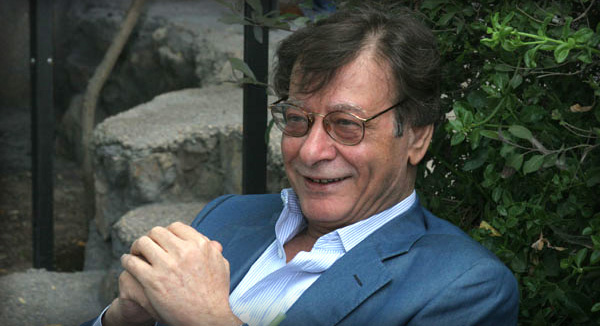Mahmoud Darwish (1941-2008) was the national poet of the Palestinians, a man whose lyrical poetry distilled the essence of loss and exemplified the dream of statehood. Ibtisam Mara’ana Menuhin’s empathetic biopic, Write Down, I Am An Arab, will be screened at the Canadian International Documentary Festival (Hot Docs) in Toronto on April 27, April 29 and May 4.
The 73-minute Israeli/Palestinian film covers the arc of his life from his birth in a western Galilee village to his untimely death following heart surgery in the United States. It’s a skillful amalgam of file footage and talking heads.

The son of a landowner, he was born in Al-Birwa, near Acre, seven years before the first Arab-Israeli war erupted. On June 11, 1948, as fighting raged, he and his family were driven out of their homes by the Israelis. They would never return. The village was razed and its land was allotted to a new kibbutz, Yasur. Having been dispossessed, he was robbed of his childhood, he says.
Exiled to Lebanon, Darwish’s family returned to the newly-created state of Israel, like some Palestinian refugees. Although they were considered “infiltrators,” they were allowed to remain in the country, settling in a village in the Galilee.
Drawn to the written word when he was a boy, Darwish launched his career as a poet when, at the age seven, he recited a nationalist poem that angered the local Israeli governor. Until 1964, Israeli Arabs lived under direct military rule, their movements circumscribed by army officers placed in charge of Arab villages.
Being an Israeli citizen, Darwish learned Hebrew, which he unfairly describes as the language of the “foreigner.” One of Darwish’s teachers, a Jewish woman, recalls that he was an able student.
The romantic relationship he formed with an Israeli woman, Tamar Ben-Ami, lies at the heart of the film. Ben-Ami, the daughter of Polish Jews who immigrated to Palestine in the 1930s, met him in the early 1960s when she belonged to an Arab-Jewish friendship society. She was a communist, as were her parents. Despite her cosmopolitan outlook and deep feelings for Darwish, she could not commit to him. The poignant love letters he wrote her are touching examples of unrequited love.
Always a Palestinian nationalist who felt alienated from Israel, Darwish was imprisoned for reciting a poem in public that the authorities deemed seditious. In 1970, he went to the Soviet Union to continue his studies.
When he was 34, he married Rana Kabbani, the 18-year-old daughter of an Arab diplomat. Their marriage broke up, and years later, she remembers him fondly.
Darwish joined the PLO in 1973, when he lived in Beirut. As a result, the Israeli government forbade him to return to Israel. To the Palestinians, however, he was a hero. Yasser Arafat, the chairman of the PLO, embraced him after he read a poem to the Palestine National Council in 1988.
Darwish’s exile ended in 1993 after the Oslo accord was signed. Carrying a Palestinian identity card, he was permitted to return to Israel on a three-day visit. Eventually, he settled in Ramallah, a Palestinian town in the West Bank near Jerusalem.
Write Down, I Am An Arab humanizes a poet who expressed the heart-felt sentiments of a people.